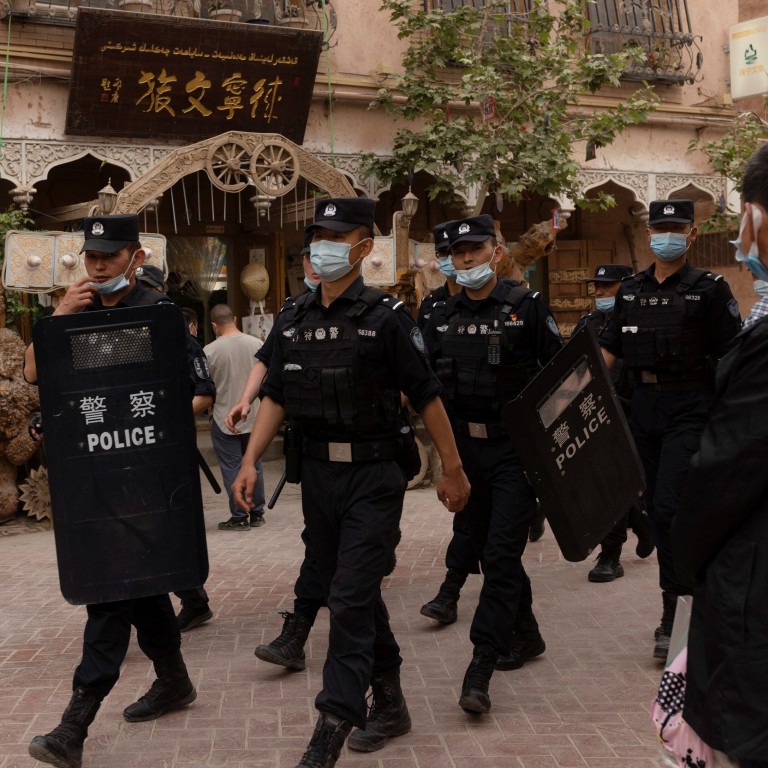
China holds firm on Xinjiang as neighbouring Afghanistan poses security concerns
- Counterterrorism and stability measures will continue in the remote region which shares a border with the war-torn country
- Beijing has sought assurances from the Taliban that it will cut ties with terrorist groups, including ETIM
“We are unwavering in pushing on with all these measures, especially those on counterterrorism and stability. We will sit tight on our fishing boat regardless of the wind and waves.”

02:52
US retaliates for Kabul airport attack with drone strikes on Afghan capital and border region
Ahead of the Taliban’s retaking of Kabul, China sought assurances that it would cut its ties with terrorism, especially ETIM which remains present in the country.
In an interview in July with the South China Morning Post, Taliban spokesman Suhail Shaheen said the group would no longer allow China’s Uygur separatist fighters to enter Afghanistan. He also said the Taliban would prevent al-Qaeda or any other terrorist group from operating there.
The commitment was reiterated by the Taliban leadership during a meeting with Chinese Foreign Minister Wang Yi in Tianjin, two weeks before the fall of Kabul.

06:22
Why Afghanistan matters to China as US withdraws from war-torn country
President Xi Jinping gave a stern warning to party cadres on the need to redouble their efforts against extremism, while stressing the importance of international engagement on the issue.
Speaking at China’s first national ethnic affairs work conference in seven years, Xi said the country should “actively and steadily address the ideological issues that involve ethnic factors, and continue to eradicate poisonous thoughts of ethnic separatism and religious extremism”, according to an official statement published on Sunday.
“International anti-terrorism cooperation should be also intensified, working with major countries, regions, international organisations and overseas Chinese ethnic minorities,” he said, without naming specific countries.
China has been under international pressure over its policies in Xinjiang, where it is accused by human rights groups and a United Nations committee of detaining as many as 1 million Uygur Muslims – the region’s largest ethnic group – in “re-education centres” where they are subjected to indoctrination, torture and forced labour.
China has defended its policies, saying it is trying to manage ethnic tensions, fight extremism and reduce poverty by developing the resource-rich region into a trade route to Central Asia.

